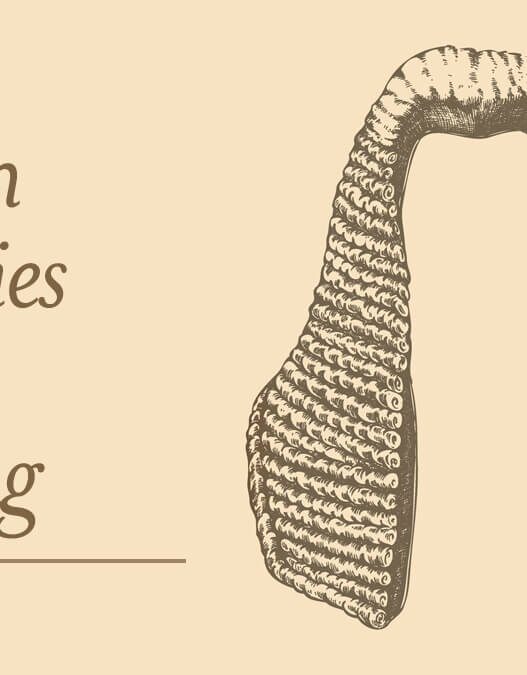Robert R. Taylor, Jr., comments that the possibility of apostasy is taught in over 2,500 places in Holy Writ.
Old testament
Consider a sampling from the Old Testament:
- “And thou, Solomon my son, know thou the God of thy father, and serve him with a perfect heart and with a willing mind: for the LORD searcheth all hearts, and understandeth all the imaginations of the thoughts: if thou seek him, he will be found of thee; but if thou forsake him, he will cast thee off for ever” (1 Chronicles 28:9).
- “Hear ye me, Asa, and all Judah and Benjamin; The LORD is with you, while ye be with him; and if ye seek him, he will be found of you; but if ye forsake him, he will forsake you.” (2 Chronicles 15:2).
- “When a righteous man doth turn from his righteousness, and commit iniquity, and I lay a stumblingblock before him, he shall die: because thou has not given him warning, he shall die in his sin, and his righteousness which he hath done shall not be remembered” (Ezekiel 3:20).
- According to Ezekiel, when righteous men turn from their righteousness and do iniquity, then all the righteousness which they have done will not be mentioned at the Judgment (Ezekiel 18:24-25). On the other hand, the repentance of the wicked can cancel out their former wickedness (Ezekiel 18:21-23).
new testament
Every book in the New Testament teaches that one can fall from grace:
- Matthew 25:14-30: In the Parable of the Talents, the servant who mismanaged the one talent was cast into outer darkness.
- Mark 4:14-20: In the Parable of the Soils, some who become Christians have their faith choked by thorns.
- Luke 8:13: Some believe for a while, but in a time of temptation fall away.
- Luke 12:45-47: The unfaithful servant will be surprised in his sins and the Lord shall cut him in sunder, and will appoint him his portion with the unbelievers.
- John 8:31: “If ye continue in my word, then are ye my disciples indeed.” The Gospel is not only law to be understood but also a life to be lived (James 2:14-26). John 3:21 says, “But he that doeth truth cometh to the light, that his deeds may be made manifest, that they are wrought in God.” Departure from truth can be practical, by falling into sinful practices; or doctrinal, by embracing error, or both. Both may be called erring from the truth, because they are contrary to what the truth requires.
Woods observed:It is not easy to separate the two concepts. Those who yield to temptation do so from a failure to exercise caution regarding the sin which so easily besets them (Hebrews 12:2); and those who forsake the truth intellectually repudiate it in practical fashion. Doctrine, without practice, is worthless (James 2:14-26); and practice without doctrine is aimless and will not long persist.[1]
- John 15:1-6: Christ is the vine and we are the branches. A branch that does not bear fruit is cut off and burned.
- Acts 1:25: Judas by transgression fell.
- Acts 5:1-11: Ananias and Sapphira were Christians who obviously died in sin.
- Acts 8:20-22: “But Peter said unto him, Thy money perish with thee, because thou hast thought that the gift of God may be purchased with money. Thou hast neither part nor lot in this matter: for thy heart is not right in the sight of God. Repent therefore of this thy wickedness, and pray God, if perhaps the thought of thine heart may be forgiven thee. For I perceive that thou art in the gall of bitterness, and in the bond of iniquity.” Simon was in danger of perishing.[2] Simon of Samaria was saved, for he did exactly what the Samaritans did and what Jesus said one must do to be saved (Mark 16:16). If he had not been saved, Peter would have told him to repent and be baptized, as he did other non-Christians (cf. Acts 2:38). He was not told to repent of sins in general, but of this one sin.
- Romans 8:12-13: If a Christian lives after the flesh, they shall die. This must refer to spiritual death since all die physically (Hebrews 9:27; cf. Revelation 21:8).
- Romans 14:15: A person for whom Christ died was in danger of being destroyed (lost). (Calvinism teaches that Christ died only for the elect and the elect can never perish.)
- 1 Corinthians 5:1-13: There was a brother in the church at Corinth who had his father’s wife. The congregation was told to deliver such an one unto Satan (1 Corinthians 5:5) in hopes that the spirit would be saved in the day of judgment. Thankfully (according to 2 Corinthians 2:3-11) it worked and the brother repented. Nonetheless, a Christian delivered unto Satan and out of fellowship with the church certainly does not have a free pass to the holy city (cf. Revelation 21:27).
- 1 Corinthians 8:11: A weak brother can perish.
- 1 Corinthians 9:27: Even Paul could have been a castaway.
- 1 Corinthians 10:12-13: The example of the Israelites (1 Corinthians 10:1-12) shows that the Christian must take heed lest he fall.
- 2 Corinthians 11:3: The example of Adam and Eve’s fall into sin and separation from Eden is used to make the point that the Corinthian Christians should be careful of Satan lest they fall into sin and be separated from heaven.
- Galatians 5:2-4: Some Christians had fallen from grace by going back to the old law. [The American Standard Version has, “Ye are severed[3] from Christ, ye who would be justified by the law; ye are fallen away from grace.”]
- Galatians 6:1: “Brethren, if a man be overtaken in a fault, ye which are spiritual, restore such an one in the spirit of meekness; considering thyself, lest thou be tempted. One does not need restoration unless he has fallen away.”
- Galatians 6:9: “We shall reap, IF we faint not.”
- Ephesians 5:3-5: “Sinful people will not enter heaven.”
To be continued
Endnotes
[1] Commentary of James. Gospel Advocate Co., Nashville
[2] Apoleia, destroying, utter destruction, of vessels, a perishing, ruin, destruction, of money, the destruction which consists of eternal misery in hell. The word is used 19 times in the New Testament and is translated perdition (8), destruction (5), waste (2), damnable, to die, perish, pernicious.
[3] Thayer says that severed means separated, discharged, loosed.












